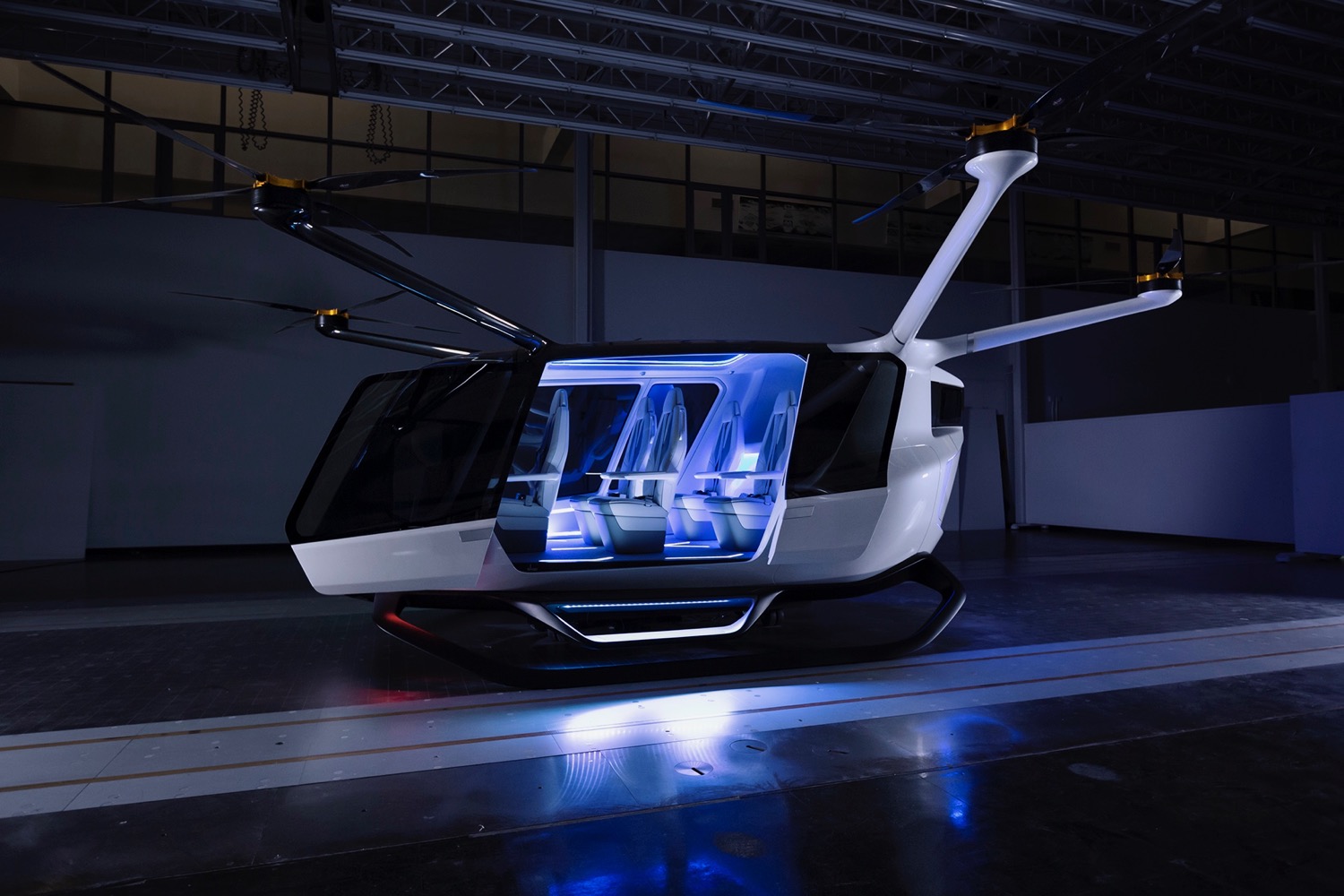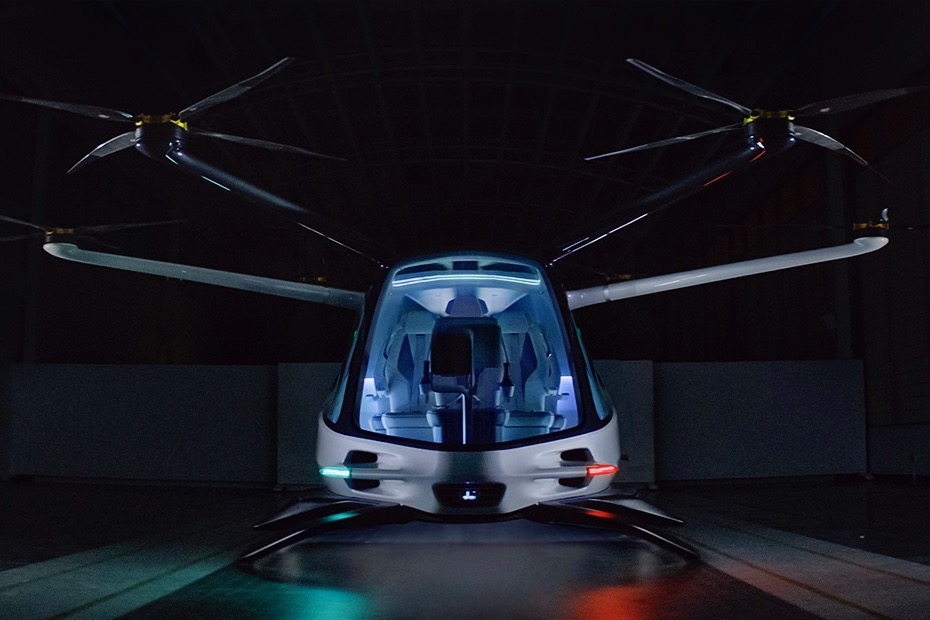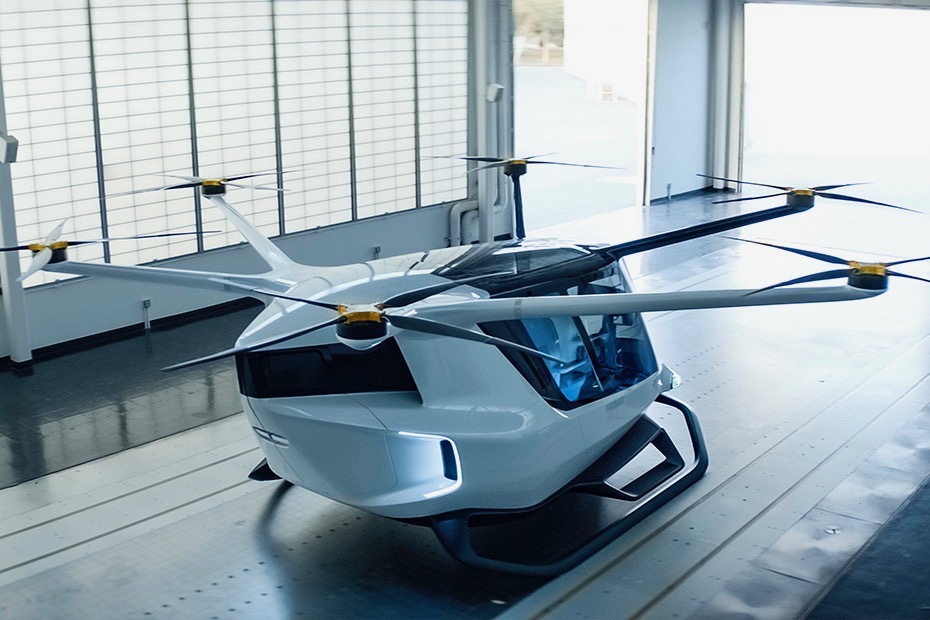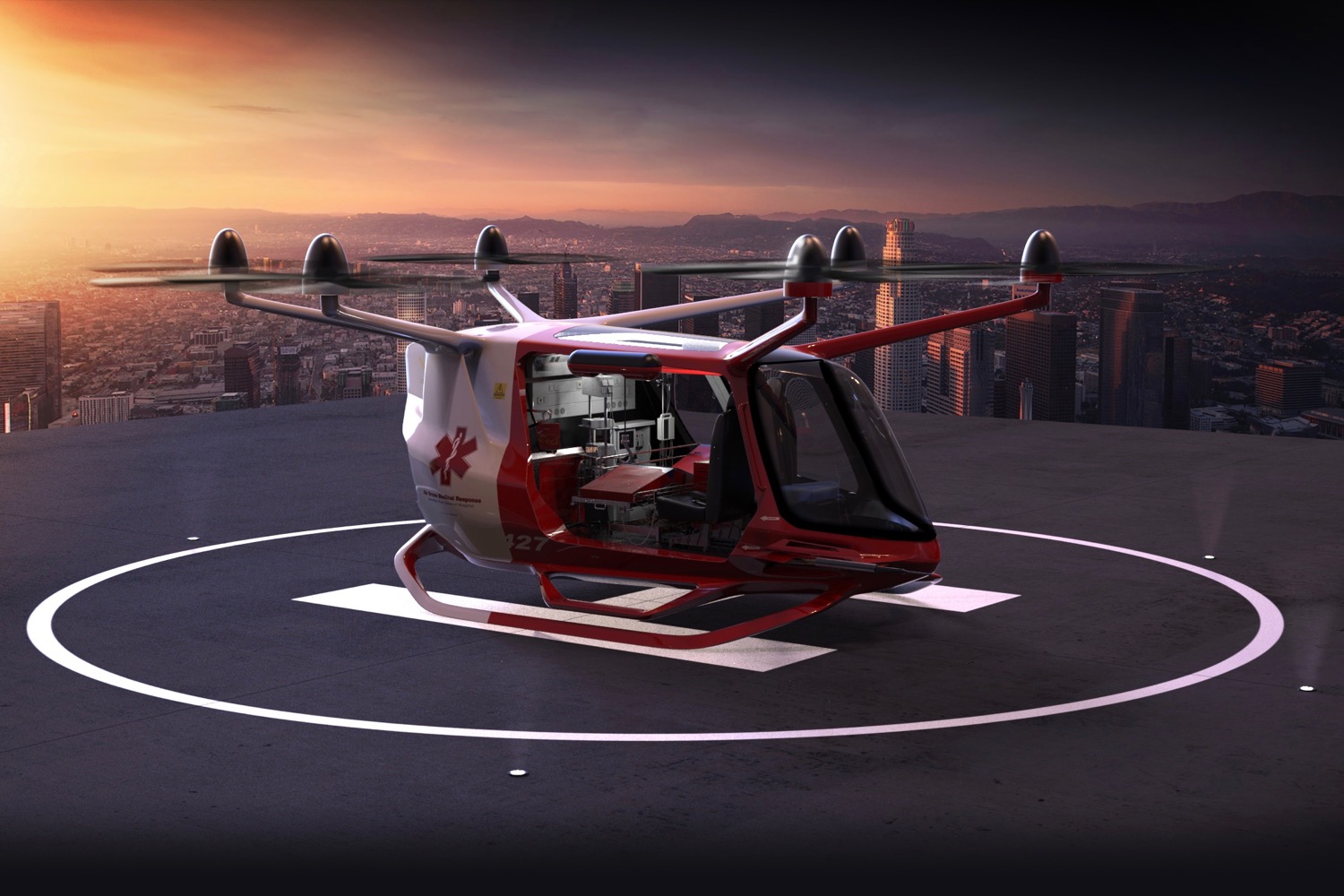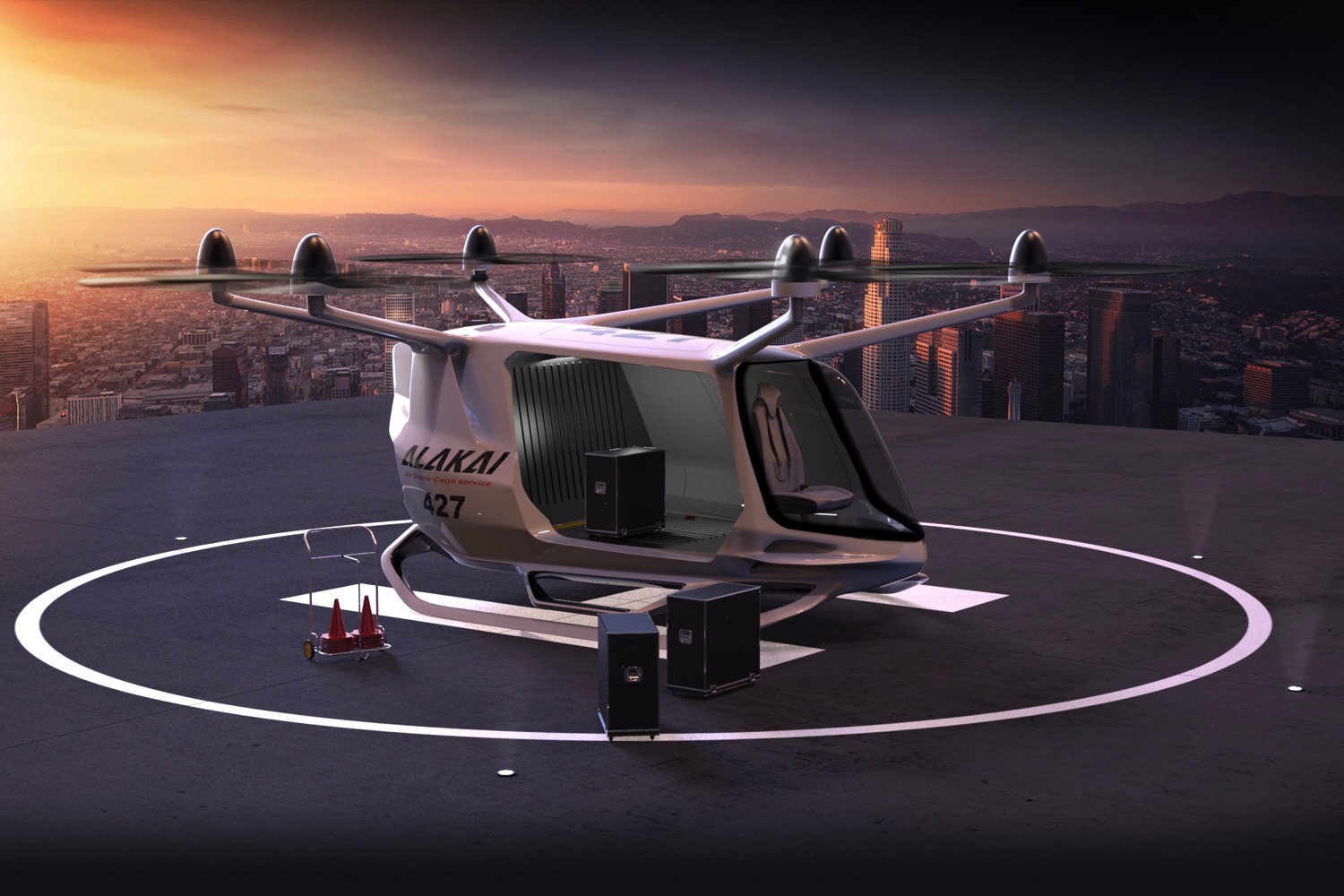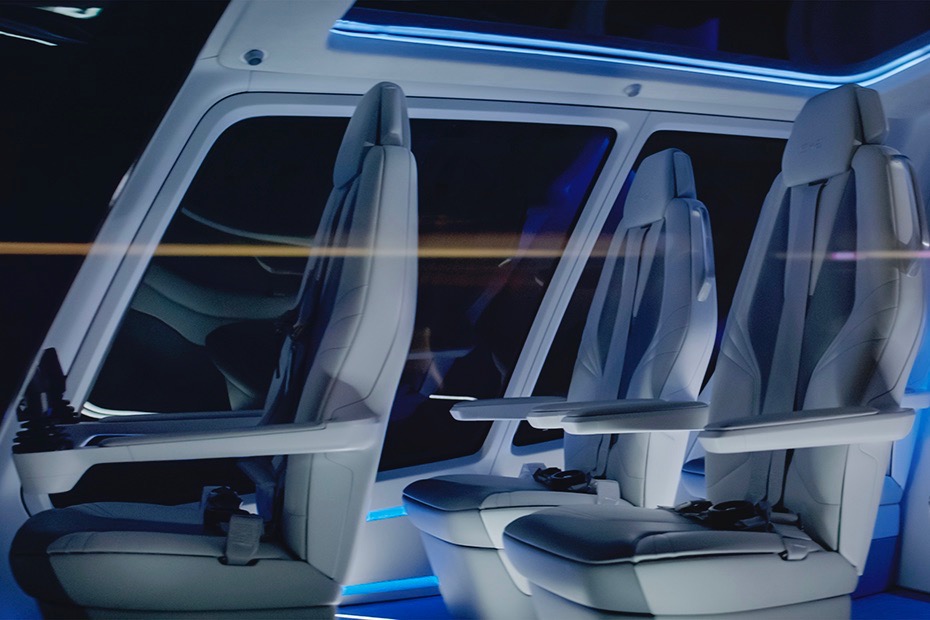Another startup is joining the long list of companies developing flying cars. Alaka’i Technologies is launching a new craft called the Skai, and like many competitors, Alaka’i plans to use its vehicle as a flying taxi or delivery van. What sets the Skai apart is its power source: Hydrogen fuel cells.
“It’s the cleanest form of energy available on the planet,” Alaka’i board member Dr. Bruce Holmes told Digital Trends regarding the choice of hydrogen. Many competitor designs use batteries, but Alaka’i believes it can achieve a lower environmental impact and better performance from fuel cells, Holmes said. Fuel cells have much greater energy density than batteries, he said, meaning they can store more energy in a given volume. That allows for a reduction in weight without sacrificing operating range. The Skai’s fuel cells are also 99% recyclable, don’t use the rare-earth metals found in lithium-ion batteries, and have a decades-long lifespan, Holmes said. Refueling is also quicker than recharging a battery pack, at under 10 minutes.
Long range and quick refueling times have been touted as perks of hydrogen fuel-cell cars, but producing and distributing hydrogen have proven problematic. Alaka’i will get its hydrogen from renewable sources, such as wind, solar, and hydro-electric, Holmes said. Instead of building a network of permanent fueling stations, Alaka’i plans to refuel its Skai vehicles from trucks, similar to the way airplanes are refueled on the tarmac at airports. That eliminates a major infrastructure headache that is currently plaguing makers of terrestrial fuel-cell vehicles.
The Skai’s fuel cells provide power to electric motors that turn six rotors. That setup gives the Skai the appearance of a giant drone, which is appropriate, as Alaka’i plans to develop an autonomous version after launching the initial human-piloted model. The Skai has room for four passengers and a pilot, and Alaka’i is aiming for a payload capacity of 1,000 pounds and a top speed of 118 mph. On a full tank of hydrogen, the Skai should have a range of 400 miles, or about four hours of flying time, according to Alaka’i.
Alaka’i has four main uses planned for the Skai. A passenger-carrying Skai Cab version will be used as a flying taxi, similar to what Uber and numerous other companies have proposed. The Skai Cargo model will be used as a flying van for so-called “last-mile” deliveries, taking packages short distances to their final destinations. The Skai Med version will be aimed at first responders, while the Skai Craft will be designed for use as personal transportation, either through sales to individual owners or through sharing services.
Upon hearing the phrase “hydrogen-powered aircraft” many people will likely think “Hindenburg.” Regardless of the power source, an aircraft that will spend most of its time flying over populated areas needs safety backups. Holmes claims the Skai can continue flying even if it loses a rotor, and can undertake a powered emergency landing after losing two rotors. The Skai’s hydrogen fuel-cell system is “triple redundant,” according to an Alaka’i press release, and the vehicle is equipped with a parachute.
The Skai needs to complete the Federal Aviation Administration (FAA) certification before it can go into production. Alaka’i is aiming to complete that process by 2020, Holmes said. If it can overcome that hurdle, Alaka’i will still face competition from other startups, as well as established aviation companies like Rolls-Royce and Bell Helicopter, all of which are looking to fill the skies with flying taxis.
